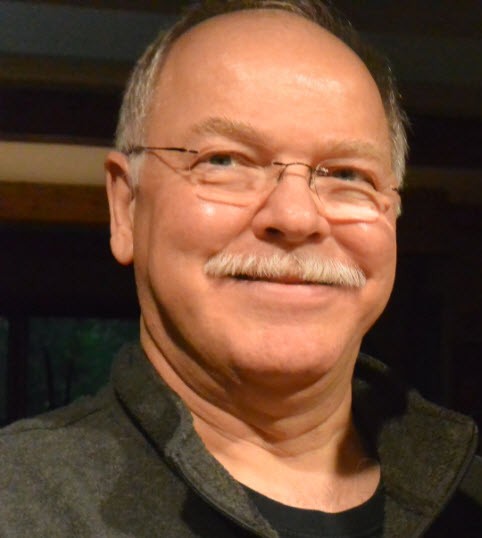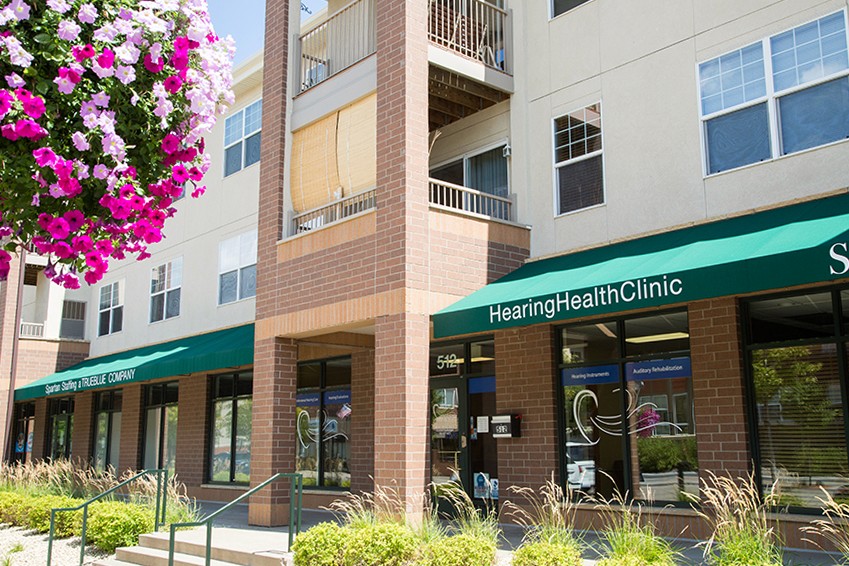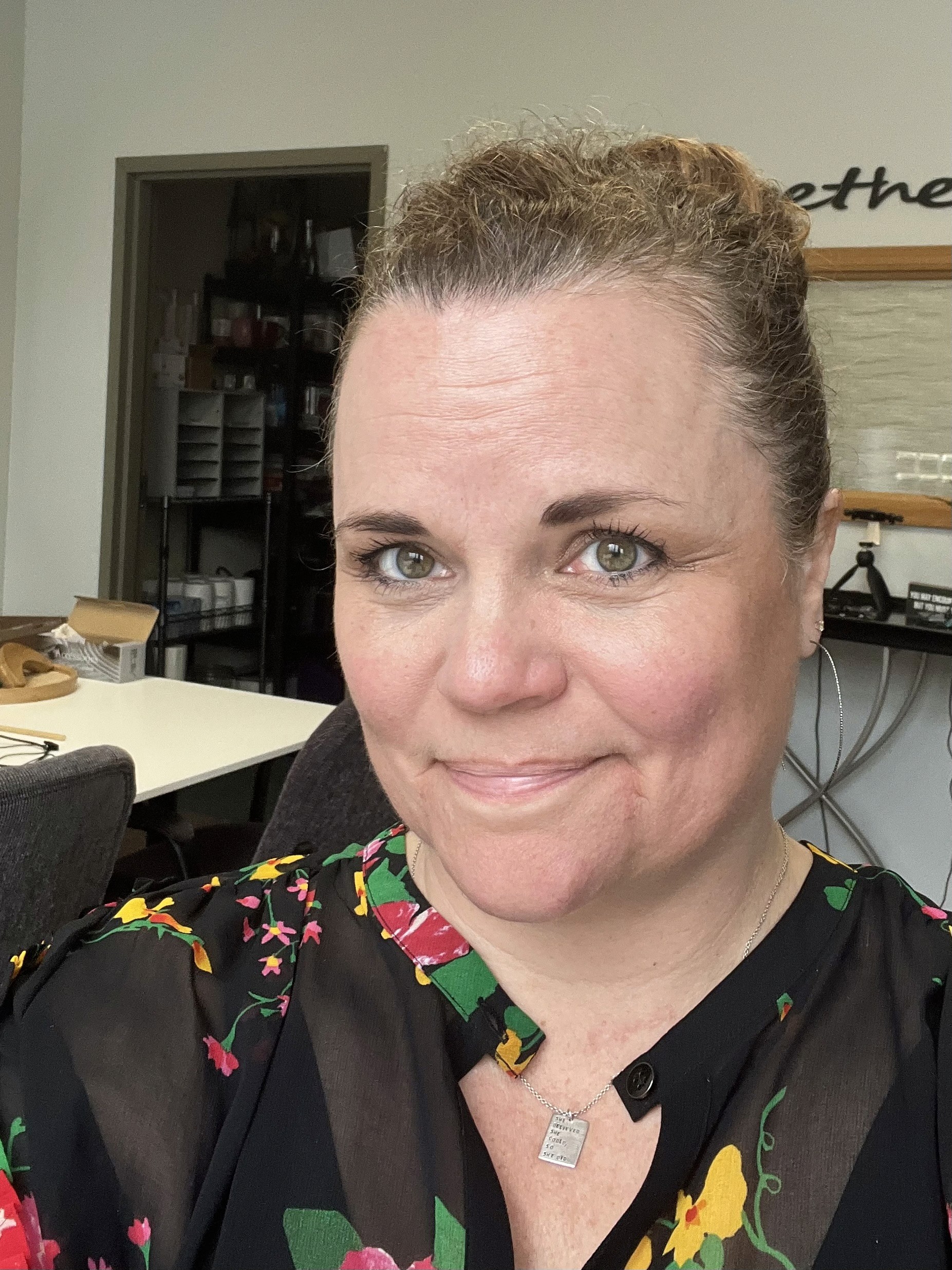

Why Choose Us
Finding More Than Care—Choosing a Partner for Your Hearing Journey
Identifying the right hearing care partner is a challenging decision. You're not just looking for someone to assist you today, but for a partner who can support you for years to come—someone committed to delivering on promises for years ahead.

Why Choose Us
Finding More Than Care—Choosing a Partner for Your Hearing Journey
Identifying the right hearing care partner is a challenging decision. You're not just looking for someone to assist you today, but for a partner who can support you for years to come—someone committed to delivering on promises for years ahead.
The 7 Reasons to Choose The
Hearing Health Clinic
You’ll Be Working Directly with Nationally Respected Doctors of Audiology
Nobody wants to be on a pilot’s maiden voyage, and when it comes to your healthcare, you naturally want to choose somebody who has achieved high success and has the experience/expertise to help you achieve the outcome that you’re looking for.
As an audiologist who trains other audiologists, Dr. Heidi Hill is the main audiologist and the driving force behind the Hearing Health Clinic, ensuring that you can work directly with an expert who is continually progressing the profession and lectures on the subject of hearing health and cognition.
You’ll Be Giving Back to the Community and the Wider World
A key part of our mission is giving back. Through our partnership with Hearing the Call we travel to impoverished areas worldwide, providing essential hearing care to those who lack access. Witnessing a child hear for the first time is transformative, often enabling better education and quality of life.
We also support local individuals unable to afford hearing care through our nonprofit program Hearing the Call – Twin Cities and by allocating a percentage of profits to aid both local and international communities. By choosing us, you contribute to this meaningful mission and help others in need.
Warm, Welcoming and Friendly
Although providing the highest levels of hearing healthcare is a core focus, it’s delivered with a big heart and soul. As you’ll hear from existing patients, you’ll be welcomed into a warm atmosphere where you’ll quickly become a friend, over a patient and not just a patient.
Independently Owned
Dr. Heidi Hill developed CogniHear to help audiologists assess and treat the entire auditory system, incorporating cognitive hearing science and neural coding. This program focuses on improving patient outcomes through communication and auditory rehabilitation. By looking beyond basic hearing issues and addressing the underlying causes, CogniHear ensures that treatment is more personalized and effective, leading to better long-term success in hearing improvement.
Committed for the Long-Haul
Hearing healthcare requires a partnership. It’s a journey, not a destination. and You want to have the confidence that you’ll have the right partner with you for the journey.
As a proudly independent business, our focus is serving the community for many decades to come, to ensure that every single short-term and long-term promise can be made and honored.
Supporting New and Existing Hearing Aid Wearers
Although many people believe hearing technology is the solution to a hearing challenge, they often learn that without the right hearing care professional, they end up with a frustrating experience and lackluster results. However, this is often not the fault of the hearing technology but because the best practices and expertise was missing during the testing and fitting process.
Through our functional hearing assessments and expertise, we have an established a track-record for helping unsatisfied hearing aid wearers to finally achieve the performance that they were initially hoping for.
The 7 Reasons to Choose The
Hearing Health Clinic
You’ll Be Working Directly with Nationally Respected Doctors of Audiology
Nobody wants to be on a pilot’s maiden voyage, and when it comes to your healthcare, you naturally want to choose somebody who has achieved high success and has the experience/expertise to help you achieve the outcome that you’re looking for.
As an audiologist who trains other audiologists, Dr. Heidi Hill is the main audiologist and the driving force behind the Hearing Health Clinic, ensuring that you can work directly with an expert who is continually progressing the profession and lectures on the subject of hearing health and cognition.
You’ll Be Giving Back to the Community and the Wider World
A key part of our mission is giving back. Through our partnership with Hearing the Call we travel to impoverished areas worldwide, providing essential hearing care to those who lack access. Witnessing a child hear for the first time is transformative, often enabling better education and quality of life.
We also support local individuals unable to afford hearing care through our nonprofit program Hearing the Call – Twin Cities and by allocating a percentage of profits to aid both local and international communities. By choosing us, you contribute to this meaningful mission and help others in need.
Warm, Welcoming and Friendly
Although providing the highest levels of hearing healthcare is a core focus, it’s delivered with a big heart and soul. As you’ll hear from existing patients, you’ll be welcomed into a warm atmosphere where you’ll quickly become a friend, over a patient and not just a patient.
Independently Owned
Dr. Heidi Hill developed CogniHear to help audiologists assess and treat the entire auditory system, incorporating cognitive hearing science and neural coding. This program focuses on improving patient outcomes through communication and auditory rehabilitation. By looking beyond basic hearing issues and addressing the underlying causes, CogniHear ensures that treatment is more personalized and effective, leading to better long-term success in hearing improvement.
Committed for the Long-Haul
Hearing healthcare requires a partnership. It’s a journey, not a destination. and You want to have the confidence that you’ll have the right partner with you for the journey.
As a proudly independent business, our focus is serving the community for many decades to come, to ensure that every single short-term and long-term promise can be made and honored.
Supporting New and Existing Hearing Aid Wearers
Although many people believe hearing technology is the solution to a hearing challenge, they often learn that without the right hearing care professional, they end up with a frustrating experience and lackluster results. However, this is often not the fault of the hearing technology but because the best practices and expertise was missing during the testing and fitting process.
Through our functional hearing assessments and expertise, we have an established a track-record for helping unsatisfied hearing aid wearers to finally achieve the performance that they were initially hoping for.
The 7 Reasons to Choose The
Hearing Health Clinic
You’ll Be Working Directly with Nationally Respected Doctors of Audiology
Nobody wants to be on a pilot’s maiden voyage, and when it comes to your healthcare, you naturally want to choose somebody who has achieved high success and has the experience/expertise to help you achieve the outcome that you’re looking for.
As an audiologist who trains other audiologists, Dr. Heidi Hill is the main audiologist and the driving force behind the Hearing Health Clinic, ensuring that you can work directly with an expert who is continually progressing the profession and lectures on the subject of hearing health and cognition.
You’ll Be Giving Back to the Community and the Wider World
A key part of our mission is giving back. Through our partnership with Hearing the Call we travel to impoverished areas worldwide, providing essential hearing care to those who lack access. Witnessing a child hear for the first time is transformative, often enabling better education and quality of life.
We also support local individuals unable to afford hearing care through our nonprofit program Hearing the Call – Twin Cities and by allocating a percentage of profits to aid both local and international communities. By choosing us, you contribute to this meaningful mission and help others in need.
Warm, Welcoming and Friendly
Although providing the highest levels of hearing healthcare is a core focus, it’s delivered with a big heart and soul. As you’ll hear from existing patients, you’ll be welcomed into a warm atmosphere where you’ll quickly become a friend, over a patient and not just a patient.
Independently Owned
Dr. Heidi Hill developed CogniHear to help audiologists assess and treat the entire auditory system, incorporating cognitive hearing science and neural coding. This program focuses on improving patient outcomes through communication and auditory rehabilitation. By looking beyond basic hearing issues and addressing the underlying causes, CogniHear ensures that treatment is more personalized and effective, leading to better long-term success in hearing improvement.
Committed for the Long-Haul
Hearing healthcare requires a partnership. It’s a journey, not a destination. and You want to have the confidence that you’ll have the right partner with you for the journey.
As a proudly independent business, our focus is serving the community for many decades to come, to ensure that every single short-term and long-term promise can be made and honored.
Supporting New and Existing Hearing Aid Wearers
Although many people believe hearing technology is the solution to a hearing challenge, they often learn that without the right hearing care professional, they end up with a frustrating experience and lackluster results. However, this is often not the fault of the hearing technology but because the best practices and expertise was missing during the testing and fitting process.
Through our functional hearing assessments and expertise, we have an established a track-record for helping unsatisfied hearing aid wearers to finally achieve the performance that they were initially hoping for.
The Stories Of Others

Nathan B
Hearing Assessment
I was nervous about my hearing test, but Dr. Heidi at The Hearing Health Clinic made it so easy. She explained everything clearly, and I finally feel like I’m taking control of my hearing health. Thank you so much!

James B
Tinnitus Treatment
I thought I’d just have to live with my tinnitus forever, but Dr. Heidi gave me real hope. The care and attention I got at The Hearing Health Clinic were amazing—I’m finally starting to feel like myself again.

Steve S
Hearing Assessment
Dr. Heidi is fantastic! She took the time to really listen to my concerns and made sure I understood my results. The team at The Hearing Health Clinic is so welcoming—I highly recommend them!
The Stories Of Others

Nathan B
Hearing Assessment
I was nervous about my hearing test, but Dr. Heidi at The Hearing Health Clinic made it so easy. She explained everything clearly, and I finally feel like I’m taking control of my hearing health. Thank you so much!

James B
Tinnitus Treatment
I thought I’d just have to live with my tinnitus forever, but Dr. Heidi gave me real hope. The care and attention I got at The Hearing Health Clinic were amazing—I’m finally starting to feel like myself again.

Steve S
Hearing Assessment
Dr. Heidi is fantastic! She took the time to really listen to my concerns and made sure I understood my results. The team at The Hearing Health Clinic is so welcoming—I highly recommend them!
The Stories Of Others

Nathan B
Hearing Assessment
I was nervous about my hearing test, but Dr. Heidi at The Hearing Health Clinic made it so easy. She explained everything clearly, and I finally feel like I’m taking control of my hearing health. Thank you so much!

James B
Tinnitus Treatment
I thought I’d just have to live with my tinnitus forever, but Dr. Heidi gave me real hope. The care and attention I got at The Hearing Health Clinic were amazing—I’m finally starting to feel like myself again.

Steve S
Hearing Assessment
Dr. Heidi is fantastic! She took the time to really listen to my concerns and made sure I understood my results. The team at The Hearing Health Clinic is so welcoming—I highly recommend them!
Get in Touch
Quite often, it’s the simple questions and concerns that hold us back.
If you’re hesitating due to a lack of information, or if you’d like to talk with a member of our team, please don’t hesitate to reach out!
We’re here to help with questions, concerns, or comments you have.

Get in Touch
Quite often, it’s the simple questions and concerns that hold us back.
If you’re hesitating due to a lack of information, or if you’d like to talk with a member of our team, please don’t hesitate to reach out!
We’re here to help with questions, concerns, or comments you have.
Request a Callback
Have questions or concerns? Speak with an experienced team for a friendly, no-obligation conversation.
Simply fill out the form, and we'll call you back to offer support and guidance.
With so much confusing information online, no question is too small.
let us help clarify things for you




